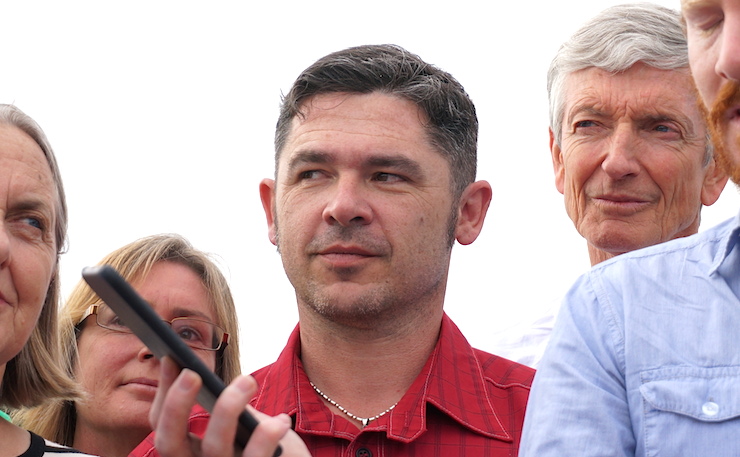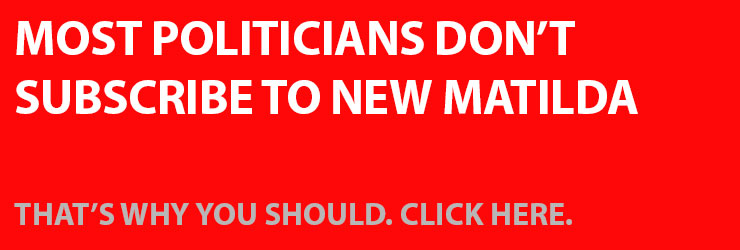New Matilda columnist Michael Brull sat down with the would-be Greens MP.
This election campaign, the ALP has run a pretty aggressive campaign against the Greens. For example, Senator Sam Dastyari said the Greens are acting like a cancer. MP Tanya Plibersek said the Greens are “doing the same as what the Right is doing”. Anthony Albanese, the ALP MP for Grayndler, said that voting for the Greens is a vote against capitalism – and that voting for Malcolm Turnbull was a vote for the Greens, which was also a vote against capitalism. The ALP has repeatedly claimed that there is a deal between the Greens and the Liberals, and even set up a website devoted to spreading this assertion. Leader of the Opposition Bill Shorten has repeatedly ruled out forming a coalition with the Greens.
New Matilda has debunked some of the attacks on the Greens. I myself responded to media attacks on Greens candidate for Grayndler, Jim Casey.
The Greens put up a page responding to smears about the supposed deal they had made with the Liberals. Senator Lee Rhiannon and Casey both called on the ALP and Liberals to respond to claims about the preference deal they had made, which was announced shortly after their media release. In general, the Greens have responded mildly to the aggressive attacks by the ALP, and certainly haven’t returned the ALP’s venom. Media has mindlessly repeated debunked attacks on the Greens, whilst giving them limited space to respond, or to say things more generally. To offer a semblance of balance, I conducted a phone interview with Casey to discuss this. It is produced below.
I should also make some disclosures. Since writing my last article on Casey, I have done some volunteering for his campaign. It has been unpaid, and hasn’t involved media work. This article has not been coordinated with his media team, other than them getting me in touch with Casey. I may explain in a future article why I am voting for the Greens.
Jim struck me as quite candid. There were elements of the politician in his avowed faith in the campaign in Grayndler, and the Greens ongoing growth. Yet his critique of the ALP was not part of any predetermined script, and his frank disavowal of the Greens getting 51 per cent of the vote was refreshing. Where I wondered why the Greens had been so reluctant to criticise the ALP, Jim more or less debunked this with the criticisms he freely made of them and their policies.
“He’s Part Of The Establishment”: Casey On Albo
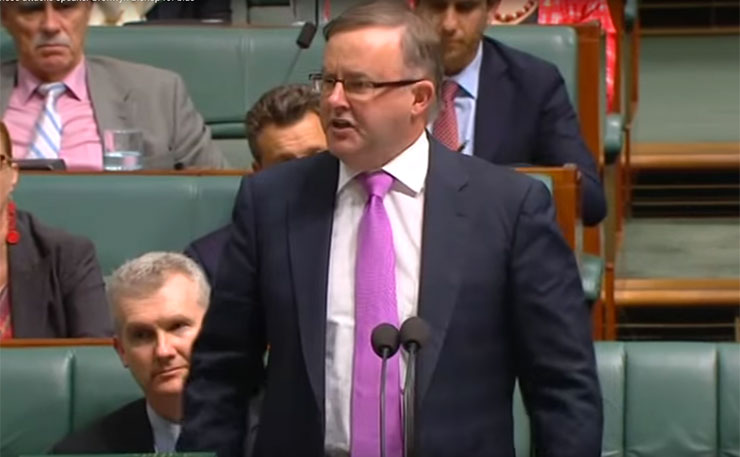
I began by asking Jim why the Greens hadn’t responded to the aggressive attacks on them by the ALP. Jim said that the Greens had come out “early and hard” on the question of the preference deal, but it “wasn’t picked up”. This is “one of the dilemmas we have as the genuinely progressive party in Australian politics. Generally speaking, our message gets out [through]word of mouth, or through personal interaction. Someone like [Grayndler MP] Anthony Albanese, he’s got the backing of News Corporation, he’s got Ray Hadley, he’s got half of Fairfax in his corner. Any statement he makes gets picked up and run with. He’s always going to have more reach through the mainstream media than we do. And that’s cool. He’s a part of the establishment, he’s a part of the problem. And of course the establishment’s going to back him in.”
As to whether the Greens should be more critical of the ALP, Jim said “I think we’re getting it right at the moment.” He said that he “would prefer to see Bill Shorten win this election than Malcolm Turnbull”. While acknowledging that there “is a difference between the two major parties”, he argued that “They are in lockstep on major, major policy questions. While the Labor Party has a good position on health and education, and this is to be encouraged and built upon, they’ve got an absolutely appalling position on human rights, an appalling position on a transition to a renewable economy, and they’re hopeless when it comes down to questions of developers against the people. I think we’re getting the balance right – credit where it’s due, condemnation where it’s not.”
I pressed the question of why the rhetoric of the Greens seemed so restrained in the face of coordinated demonisation by the ALP. Jim said this was partly because the Greens are held to a “higher standard than the other parties”, and are expected to behave better than the “majors”. This can be “frustrating”, for when he wants to “punch back on questions of the dirty deals”. But he’s proud that the Greens are held to a higher standard. Jim also said that when the Greens talk about preferences, “it hurts us more than when Labor talks about preferences.”
I asked Jim why he thought the ALP was denouncing the supposed Greens-Liberal deal, as it stitched up its own deal with the Liberals. Jim replied that they thought that “by throwing that kind of mud, some of it would stick”. Interestingly – though I didn’t pursue this line of thought – Jim said that he thought that “what we’re seeing here is the death rattles of the Left of the ALP.” He then offered a forceful response to ALP attacks: “They throw everything at us but the kitchen sink – but we keep on growing – and I think the reason we keep on growing is because we’re consistent, we’re offering up some alternative. And they’re consistent in the way they tail the conservatives, they’re consistent in that they can’t really inspire people, because they don’t have a vision for the future. It’s power for power’s sake, it’s tweaking the edge of the welfare state, by doing their level best for corporate Australia.”
As for the ALP’s venomous attacks, it is “in direct proportion to our success. In the short term, some of this will hurt. But in the medium to longer term, we’re on the right side of history… As long as Labor vacates the left as they’ve continued to do for the last 30 years, that vacuum will be filled, and it’s my hope it will be filled by the Greens.” Most interestingly – and here, I hope Jim is wrong – he said that “It’s my hope that at some point, wiser heads will prevail inside the ALP and they’ll start thinking about us in the same way that the Liberals made the accommodation with the Nationals.” I didn’t respond to Jim here, but I myself would hate to see this kind of formal coalition.
Can The Greens Win Without The Liberals?
I observed to Jim that it seemed his chances of election in Grayndler depended on preferences from the Liberals. Now that the Liberals and Labor had reached an agreement, it seemed he wouldn’t win the seat. If the Greens were hoping to get those preferences, or even striving for them, this seemed to me unwise, due to the political differences between the Greens and Liberals making any such strategy unsustainable. Jim replied that they weren’t banking on a deal with the Liberals: “We haven’t done a deal, we’ve never done a deal.” However, Jim granted that “We’re a political party”. “If there was some calculus performed by the Liberal apparatchiks that they felt like preferencing the Greens and that happens, and happy days. But that’s not the name of the game.” He observed that “Adam Bandt won Melbourne on the back of Liberal preferences. But he’s proceeded to hold it in terms of his own primary vote… Sometimes little breaks can be gains from which you can build.”
Jim concluded that “my bottom line on Grayndler is, the way that we’re going to win Grayndler is by actually having a primary vote substantial enough that we actually take it from Labor, rather than being gifted it on the back of a preference deal… While the Liberal and Labor preference deal makes it harder in Grayndler, it doesn’t make it impossible. I think it’s still winnable, and certainly I think it makes it much cleaner. I do think there’s a duopoly at the moment in Australian politics, the two major parties. This preference deal confirms it. And what’ll be interesting come July 2 will be how many voters in Grayndler feel the same way.”
Moderation Means Death
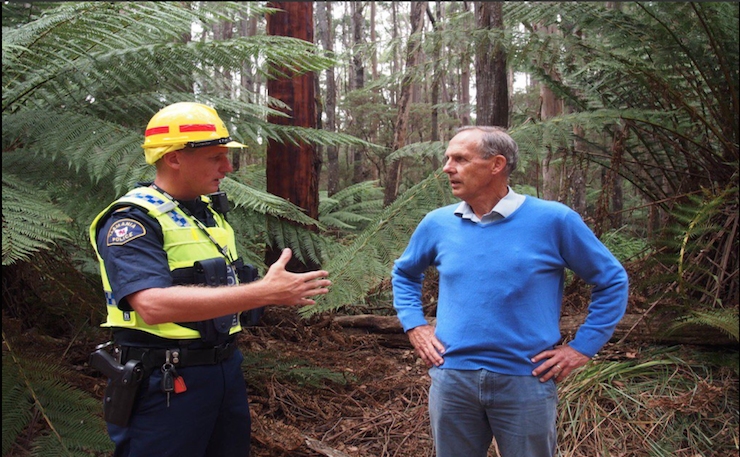
I said to Jim that Bob Brown had once claimed the Greens were aiming to get 51 per cent of the national vote. Though Jim repeatedly affirmed in the interview that the Greens were growing, in public polls they tended to stay around 10-15 percent of public support. Jim said that “I think the idea of a party like the Greens winning 51 per cent of the vote is actually inconceivable in society as we know it today in 2016… There would have to be a significant shift in the way millions of people felt for our primary vote to get to the 51 per cent mark. But that’s fine. The biggest drama would be if we diluted our position, if we moderated our position in pursuit of that 51 per cent. If we did that, that would be the end of party I believe. Because why would you vote for Labor Lite, when you could vote for Labor, which is what we would become.”
Jim then argued that the party was qualitatively growing, with its base growing, membership growing, and increasing support among junior union officials and young organisers. He said among them, “it is understood that the left political party that you want is the Greens.”
I said to Jim that there was a widespread perception that the new leader of the Greens, Richard Di Natale, was taking the Greens either to the centre, or to the right of where it previously was. I asked him whether he thought it was true that the Greens were trying to present as less radical under its new leader.
He said “I think a lot of this comes from either people who are uncomfortable with his appearance and his background. You know, he’s a well-dressed doctor.” Jim attributed some of these claims to “people who are doing their level best to make the argument that the Greens aren’t what they say they are…. tends to be people from the Labor Party.” Jim said that “Di Natale should be judged on the policies that he’s fronting… Our position always evolves, but I defy anyone to say that the program we’re taking to this election is any more conservative than the program we took to the last. I think it’s more detailed and nuanced, I think we’ve actually improved our policies on a lot of things”.
Jim gave the example of the Greens policy on creative arts, which he regards as a “great proposal… That’s new, but you couldn’t say that’s conservative. I think of lot of this is smoke and mirrors, it’s about appearances rather than actual policy.”
You Need Social Movements And Progressive Politicians: Jim Casey On His Famous Speech
Slightly mischievously, I asked Jim if he still thought that it was more important that there be social movements in the streets than progressive politicians in parliament. If so, why was he running for Parliament?
Jim replied by encouraging people to watch his speech (it goes for six and a half minutes), saying that people who took ten second grabs out of context could reach conclusions “wildly different” to what he had actually argued. Jim said that his “proposition is that the most progressive politician in the world will struggle to get anything done if society is not supporting them – actively supporting them. Parliamentary representation is really important, but it builds off what society is actually agitating for, arguing for, and building. My basic position is that you need both.” He argued that you also need politicians to push the policies that reflect social movements.
Climate Change And Inequality: Casey’s Case
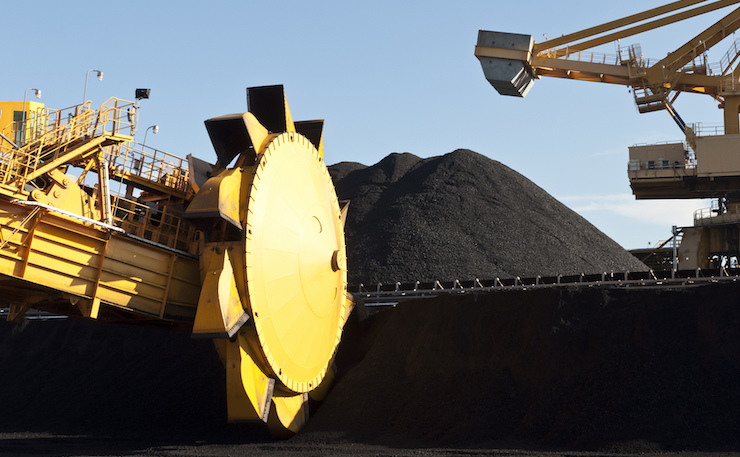
I asked Jim what the important issues are for this election. He replied that “the big questions for me are climate change and inequality. Those two questions, and I think they’re kind of related in a sense. We’re seeing a society that’s becoming increasingly unequal. We’re seeing a society where our commons are being sold off to the highest bidder, and we’re seeing a society where the way we’ve organised industry is eating the planet. These are the big ticket items really for the 21st century: systemic social inequality and ecological destruction. They’re existential threats to our society.”
Jim went on to stress the need for Parliamentary voices saying that we “can’t afford to keep mining coal, that we need to start pumping resources into renewables. That this is the future not only of the planet but our own prosperity. And that equally so, we need to make sure that the top end of town are contributing, that our commons are well resourced, that every Australian has the opportunity to get the education and healthcare that they deserve. These are the pressing questions I think, and certainly that’s why I’m running for the Greens, because I think we are the only party which has got a consistent position on those questions.”
I asked Jim what issues were important in Grayndler. He said that for two thirds of people he spoke to, WestConnex was an enormous issue, along with over-development generally. He said WestConnex will “gut” the inner west, and “won’t fix the problem of traffic congestion”. The other two things issues that popped up repeatedly were “refugees – Australia’s shameful human rights abuses that we are committing upon these people, and education. There’s a massive concern over whether Gonski will be funded, around the evisceration of TAFE, and the future of tertiary education in an acceptable manner.”
And why should people in Grayndler vote for Jim? He replied firstly by noting his “record of community service as a fire fighter and a union leader”. He said that it “shows that I’m capable, that I’m committed, and that I’ll do a good job. But that’s really not the important thing, I mean you expect that of a candidate, that they’re gonna be able to do the job. The real reason people should vote for me is because they agree with the Greens’ policies. That’s what I’ll take to Canberra, no one’s going to get any surprises there, I’ll proudly, proudly, agitate and advocate for Greens policy positions on any question, and if you agree with that, you should vote Green.”
Donate To New Matilda
New Matilda is a small, independent media outlet. We survive through reader contributions, and never losing a lawsuit. If you got something from this article, giving something back helps us to continue speaking truth to power. Every little bit counts.

